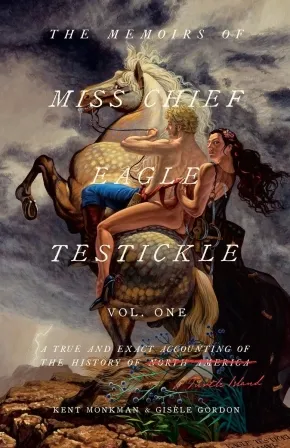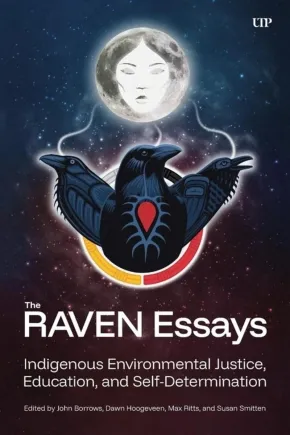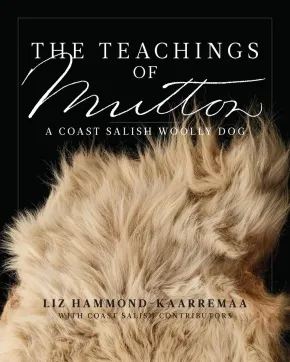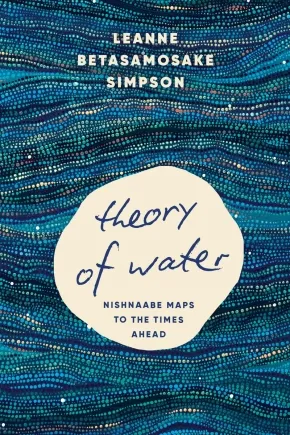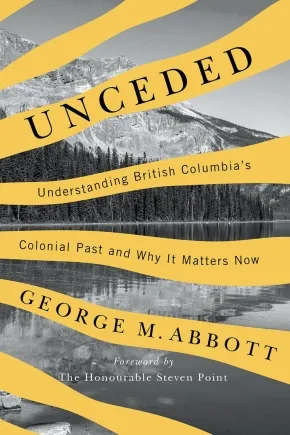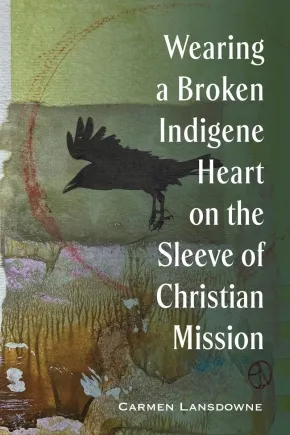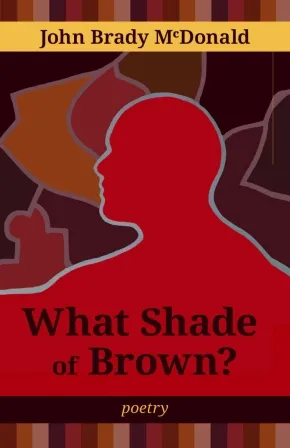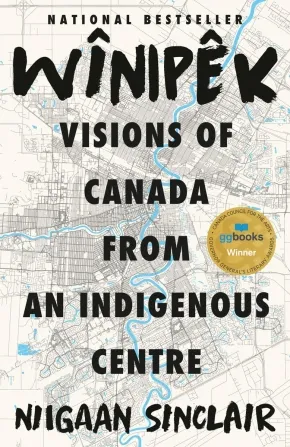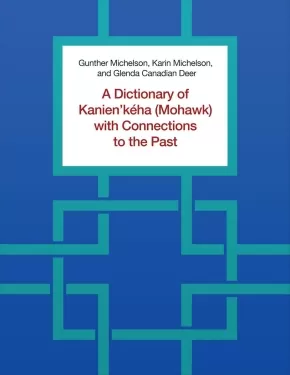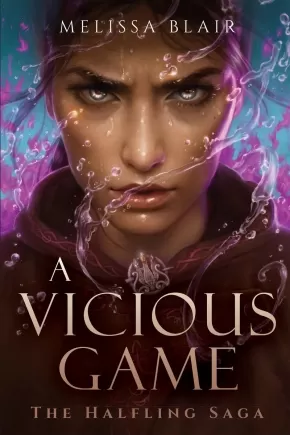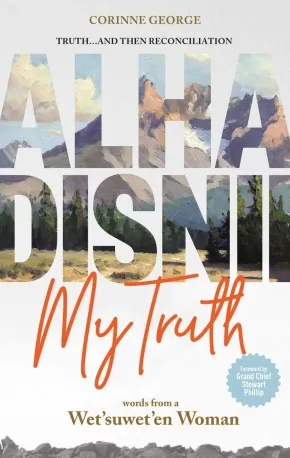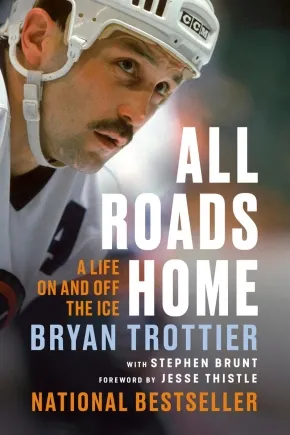
First Nations
61
-
75
of
786 Results;
Sort By
Go To
of 53
The Memoirs of Miss Chief Eagle Testickle: Vol. 1: A True and Exact Accounting of the History of Turtle Island (PB)
$30.00
Format:
Paperback
Text Content Territories:
Indigenous Canadian; First Nations; Cree (Nehiyawak);
Reading Level: N/A
ISBN / Barcode: 9780771022814
Synopsis:
Synopsis:
From global art superstar Kent Monkman and his long-time collaborator Gisèle Gordon, a transformational work of true stories and imagined history that will remake readers’ understanding of the land called North America.
For decades, the singular and provocative paintings by Cree artist Kent Monkman have featured a recurring character—an alter ego of sorts, a shape-shifting, time-travelling elemental being named Miss Chief Eagle Testickle. Though we have glimpsed her across the years in films and on countless canvases, it is finally time to hear her story, in her own words. And, in doing so, to hear the whole history of Turtle Island anew. The Memoirs of Miss Chief Eagle Testickle: A True and Exact Accounting of the History of Turtle Island is a genre-demolishing work of genius, the imagined history of a legendary figure through which profound truths emerge—a deeply Cree and gloriously queer understanding of our shared world, its past, its present, and its possibilities.
Volume One, which covers the period from the creation of the universe to the confederation of Canada, follows Miss Chief as she moves through time, from a complex lived experience of Cree cosmology to the arrival of European settlers, many of whom will be familiar to students of history. An open-hearted being, she tries to live among those settlers, and guide them to a deeper understanding of the interconnectedness of all beings and the world itself. As their numbers grow, though, so does conflict, and Miss Chief begins to understand that the challenges posed by the hordes of newly arrived Europeans will mean ever greater danger for her, her people, and, by extension, all of the world she cherishes.
Blending history, fiction, and memoir in bold new ways, The Memoirs of Miss Chief Eagle Testickle are unlike anything published before. And in their power to reshape our shared understanding, they promise to change the way we see everything that lies ahead.
Reviews
"Long a persona stalking the paintings of provocative Cree artist Kent Monkman, Miss Chief Eagle Testickle steps off the canvas to tell her own story—and that of the Indigenous peoples of Turtle Island—in a two volume collaboration with Gisèle Gordon. Lavishly illustrated with Monkman’s paintings, The Memoirs of Miss Chief Eagle Testickle is at once (and seamlessly) a unique story of an even more unique deity, an exposition of nêhiyaw (Cree) beliefs and a primer in nêhiyawêwin (Cree Language), and a deeply researched history of contact, colonization, and resurgence. A full-blown remediation of the politically-charged and erotic world of Monkman’s paintings, these books educate, inspire, entertain, and leave the reader breathless."—Steve Collis, 2024 VMI Betsy Warland Between Genres Award judge
Additional Information
264 pages | 6.51" x 9.99"" | Full-colour art throughout | Paperback
The RAVEN Essays: Indigenous Environmental Justice, Education and Self-Determination
$34.95
Editors:
Format:
Paperback
Text Content Territories:
Indigenous Canadian;
Reading Level: N/A
ISBN / Barcode: 9781487562380
Synopsis:
Synopsis:
Named after the Respecting Aboriginal Values and Environmental Needs (RAVEN) nonprofit organization, The RAVEN Essays is an anthology that celebrates a decade of prize-winning student essays. Since 2012, RAVEN has awarded an annual essay prize to honour students who champion the vital importance of Indigenous rights and self-determination, both in Canada and globally. The essays featured in this collection highlight exceptional student work while reflecting on the evolving relationship between Indigenous politics and academia. From issues like fishing rights and the Trans Mountain Pipeline to challenges of sexism and conservation policy, these essays capture a transformative period in Indigenous struggles, offering insights that resonate far beyond the Canadian settler state.
The anthology also includes contributions from prominent scholars such as Glen Coulthard, Dara Culhane, Michael Fabris, Sarah Hunt, and Heather Dorries. Five complementary essays explore various aspects of structural change, institutional constraints, and broader commitments to Indigenous knowledge within university settings. Aimed at readers in Indigenous law, environmental studies, anthropology, and geography, The RAVEN Essays is a book created by students for students, and by academics for the academy.
Together, the contributors reflect on the powerful formation and enactment of Indigenous law, environmental stewardship, place-based knowledge, pedagogy, and literacy – both within the academy and in the broader community, across land, water, and culture.
This collection celebrates emerging scholars in Indigenous studies, featuring student essays that explore Indigenous justice, ethics, and environmental justice, while highlighting a decade of collaboration with RAVEN, a legal defence organization.
Educator Information
Chapters
List of Illustrations
Acknowledgments
Introduction: The RAVEN Essays
Susan Smitten
1. Situating the Raven Stories
Dawn Hoogeveen, Max Ritts, and Heather Dorries
2. Making Meaning: Indigenous Legal Education and Student Action
John Borrows
Part One: Principles
3. (In)Voluntarily Enfranchised: Bill C-3 and the Need for Strengthening Kinship Laws in Treaty 4
Danette Jubinville
4. Sharing of the Dish: The Dish with One Spoon and Environmental Planning in Toronto
Da Chen
5. “My Story”
Wade Houle
Part Two: Relations
6. Lake One Trail: Exploring the Egheze Kue Aze (Egg Lake) Landscape in Wood Buffalo National Park of Canada
Laura Peterson
7. The Berry Picker
Atlanta Grant
8. Swimming Upstream against (Neo)colonialism: On Salmon Aquaculture Supremacy and the Decline of Sockeye in the Stó:lō
Erica Hiroko Isomura
Part Three: Struggles
9. Thieves of the North-West Coast: Understanding Indigenous and Non-Indigenous Relations in Clayoquot Sound, 1791–1792
André Bessette
10. The Fight for Water: Examining Environmental Racism and the Effects on First Nations Culture and Society in British Columbia
Kevin Ly
11. Indigenous Legal Systems and the Struggle for Recognition
Tosin Fatoyinbo
12. Contemporary Colonialism: The Dakota Access Pipeline
Helena Arbuckle
Conclusion: A RAVEN Roundtable
John Borrows, Glen Coulthard, Mike Fabris, Dawn Hoogeveen, Max Ritts, and Susan Smitten
Afterword: Raven Goes to School – (Re)learning Transformation from Graduate Students
Sarah Hunt – Tłaliłila’ogwa
Contributors
Index
Educator Information
306 pages | 6.00" x 9.00" | 11 Illustrations | Paperback
The Rise of Indigenous Economic Power: Deconstructing Indian Act Economics
$29.99
Format:
Paperback
Text Content Territories:
Indigenous;
Reading Level: N/A
ISBN / Barcode: 9781774060155
Synopsis:
Synopsis:
Indigenomics in action-moving beyond Indian Act economics towards Indigenous economic sovereignty
In this groundbreaking new work, Carol Anne Hilton, author of the bestselling Indigenomics, explores the phenomenon of growing Indigenous economic power and sovereignty, achieved despite monumental historic injustices.
The Indigenous economy in Canada is on track to exceed $100 billion. Yet full Indigenous participation at the economic table is still fundamentally lacking, due in large part to the inherently colonial and racist policies of the Indian Act. Hilton deconstructs these systemic barriers and maps an ethical way forward based on radical inclusion and Indigenomics in action.
Coverage includes:
- The far-reaching social and moral consequences of Indian Act economics-a tool used to legislate away Indigenous rights and jurisdiction with the express purpose of erasing First Nations
- The true cost of maintaining the status quo, from perpetuating inequality and cycles of Indigenous poverty, to lost opportunities for value-creation in Indigenous and settler economies
- Twenty-five transformative trends driving Indigenous economic growth.
Required reading for Indigenous organizations, Nations, and allies; business leaders and investors; lawyers and policymakers; governments at all levels; and everyone interested in reconciliation, decolonization, and building a just, prosperous, and inclusive society.
Reviews
"Hilton's work reaffirms the significance of relationship economics. Her words clearly illustrate that Indigenomics is the path for the future. As we move through the portal of this time, knowing that pandemics change our world, let's walk through to a path of restorative economics, founded on land, spirit, and the reality of Mother Earth's wealth, which is our responsibility to acknowledge and respect. The time of Keynesian economic analysis has passed, along with the empire. The time of cooperation is here." -Winona LaDuke, executive director, Honor the Earth Carol Anne
"Hilton mounts a convincing case that the rigidity of the Indian Act has put the rest of Canada in a static status-quo headspace that sees Indigenous Peoples as taken care of; meaning they don't see how adept they are in their economic empowerment as they consistently score in the open net." -Bill Gallagher, resource strategist
"A dynamic pathway to equitable Indigenous economic liberation and advancement." -Ruth Mojeed Ramirez, Chief Equity Officer, The Inclusion Project
"A comprehensively insightful guide for advancing Indigenous economic growth and inclusion." -Vinod Rajasekaran, CEO, Future of Good
"An essential primer for those seeking to understand and celebrate the economic rebirth of Indigenous communities." -Ken Coates, professor emeritus, University of Saskatchewan
Educator Information
The Indigenous economy is surging, but full Indigenous economic participation is still lacking, thwarted by the colonial and racist policies of Canada’s Indian Act. The Rise of Indigenous Economic Power deconstructs these historic and systemic barriers and presents an ethical response based on Indigenomics in action.
Additional Information
264 pages | 6.00" x 9.00" | 5 b&w illustrations | Paperback
The Teachings of Mutton: A Coast Salish Woolly Dog
$36.95
Format:
Paperback
Text Content Territories:
Indigenous Canadian; First Nations; Salish; Coast Salish; Sto:lo; Katzie First Nation; Squamish; Snuneymuxw ; Musqueam; Indigenous American; Native American; Salish; Coast Salish; Suquamish ; Skokomish (Twana);
Reading Level: N/A
ISBN / Barcode: 9781998526024
Synopsis:
Synopsis:
The pelt of a dog named “Mutton” languished in a drawer at the Smithsonian for 150 years until it was discovered, almost accidentally, by an amateur archivist. This book tells Mutton's story and explores what it can teach us about Coast Salish Woolly Dogs and their cultural significance.
Until now, there has been very little written about the enigmatic Coast Salish Woolly Dog, or sqʷəmey̓ in the Hul'q'umi'num language. According to Indigenous Oral Histories of the Pacific Northwest, this small dog was bred for thousands of years for its woolly fibres, which were woven into traditional blankets, robes and regalia. Although the dogs were carefully protected by Coast Salish peoples, by the 1900s, the Woolly Dog had become so rare it is now considered extinct.
Co-authored with weavers, Knowledge Keepers, and Elders, The Teachings of Mutton interweaves perspectives from Musqueam, Squamish, Stó:lō, Suquamish, Cowichan, Katzie, Snuneymuxw, and Skokomish cultures with narratives of science, post-contact history, and the lasting and devastating impacts of colonization. Binding it all together is Mutton's story—a tale of research, reawakening, and resurgence.
Reviews
“What a compelling story, reflecting a way of life, practical knowledge, artistry and change in the Pacific Northwest! Mutton, the domesticated woolly dog, represents so much more than a museum collection or a source of weaving material. Generations of breeding, learning and sharing, caring and trading are mirrored in the discovery of his pelt in a drawer at the Smithsonian. Liz Hammond-Kaarremaa and her respected Salishan co-authors and Knowledge Keepers have brought Mutton into the present, and in doing so, have given us a new and unique perspective on the complex history of this region and on the meaning of Truth and Reconciliation. The book is clearly and thoughtfully written, and supplemented with excellent illustrations. It is a ‘must read’ for anyone wishing to know more about weaving arts, dog breeds, Indigenous cultures and/or history in northwestern North America.” — Nancy J. Turner, Distinguished Professor Emerita, University of Victoria
“Conscientious and accessible, The Teachings of Mutton weaves a charming and informative history, walking through the discovery of his pelt in a museum drawer to the modern science that reveals the shape of this dog’s life. Highlighting and correcting generations of non-Indigenous misinterpretation, the intertwined histories provided by Salish knowledge keepers reveal the nuanced Indigenous sciences of dog husbandry, spinning, weaving, and the cultural significance of Woolly Dogs while telling a lively story.” — Kathryn Bunn-Marcuse, PhD, curator of Northwest Native art and director of the Bill Holm Center for
Additional Information
264 pages | 8.00" x 10.00"
Theory of Water: Nishnaabe Maps to the Times Ahead
$35.00
Format:
Hardcover
Text Content Territories:
Indigenous Canadian; First Nations; Anishinaabeg; Ojibway; Mississaugas; Alderville First Nation;
Reading Level: N/A
ISBN / Barcode: 9781039010246
Synopsis:
Synopsis:
Acclaimed Nishnaabeg writer Leanne Betasamosake Simpson takes a revolutionary look at that most elemental force, water, and suggests a powerful path for the future.
A genre-bending exploration of that most elemental force-water-through Indigenous storytelling, personal memory, and the work of influential artists and writers.
For many years, Leanne Betasamosake Simpson took solace in skiing--in all kinds of weather, on all kinds of snow across all kinds of terrain, often following the trail beside a beloved creek near her home. Recently, as she skied on this path against the backdrop of uncertainty, environmental devastation, rising authoritarianism and ongoing social injustice, her mind turned to the water in the creek and an elemental question: What might it mean to truly listen to water? To know water? To exist with and alongside water?
So began a quest to understand her people's historical, cultural, and ongoing interactions with water in all its forms (ice, snow, rain, perspiration, breath). Pulling together these threads, Leanne began to see how a "Theory of Water" might suggest a radical rethinking of relationships between beings and forces in the world today. In this inventive work, Simpson draws on Nishnaabeg origin stories while artfully weaving the work of influential writers and artists alongside her personal memories and experience--and in doing so, reimagines water as a catalyst for radical transformation, capable of birthing a new world.
Theory of Water is a resonant exploration of an intricate, multi-layered relationship with the most abundant element on our planet--one that, as Simpson eloquently shows, is shaping our present even as it demands a radical rethinking of how we might achieve a just future.
Additional Information
224 pages | 5.50" x 8.25" | Hardcover
Unceded: Understanding British Columbia’s Colonial Past and Why It Matters Now
$29.95
Format:
Paperback
Text Content Territories:
Indigenous Canadian; First Nations;
Reading Level: N/A
ISBN / Barcode: 9780774881159
Synopsis:
Synopsis:
In British Columbia, land acknowledgements often refer to “unceded territory.” Yet many people remain uncertain about the history behind these words or their implications for the future of the province.
Unceded reveals the BC government’s history of injustice toward First Nations, providing the context for understanding the province’s current reconciliation efforts, including modern treaty negotiations. Treaty commissioner George M. Abbott combines archival research with a former cabinet minister’s insider perspective on government to chronicle over 150 years of BC-Indigenous relations. Abbott’s account details how early government officials refused to negotiate treaties and instead coerced First Nations onto small and scattered reserves while granting settlers access to vast tracts of land. Despite sustained Indigenous resistance, the situation only worsened as non-Indigenous demands for land and natural resources increased in the decades that followed.
It was only after several Supreme Court decisions affirmed Indigenous land rights that BC sat down at the negotiating table. More recently, the province has taken notable steps toward reconciliation, concluding modern treaties and passing legislation that acknowledges Indigenous rights. As Abbott shows, overcoming the legacy of colonialism is no small task, but achieving justice is worth the effort it takes.
This book is for readers of BC history, those who follow provincial politics, or anyone invested in the future of British Columbia. It is essential reading for elected officials and policy makers and will also appeal to scholars and students of Canadian history, political science, and Indigenous-settler relations.
Reviews
"Unceded is an excellent account of the relationship between First Nation groups and the government of British Columbia. It is well-researched and enriched by interesting insights from George Abbott’s own involvement in more recent developments as a member of the provincial cabinet."— Jim Reynolds, author of Canada and Colonialism and former general counsel to the Musqueam First Nation
"I wish to thank George Abbott for his book about our colonial past. It is only with a better understanding of our history that we can have a better chance of creating a brighter future for First Nations in British Columbia."— From the foreword by the Honourable Steven Point, Grand Chief of the Stó:lō and BC’s first Indigenous Lieutenant-Governor
Additional Information
280 pages | 6.00" x 9.00" | Paperback
We see stars only at night
$10.00
Artists:
Format:
Paperback
Text Content Territories:
Indigenous Canadian; First Nations; Dene; Tahltan (Nahanni);
Reading Level: N/A
ISBN / Barcode: 9781772621006
Synopsis:
Synopsis:
A pocket-sized comic by Indigenous Voices winner Cole Pauls.
Llege zedle s_on nes_it'in (Tahltan for we see stars only at night ) is a surrealistic landscape of Tahltan shapes, culture and motifs. Originally created for the Nanaimo Art Gallery's group show "Gutters are Elastic" between July 15 to September 23, 2023, Pauls decided to expand the work into a full-length book.
Playing with the connection between land, regalia, performance and heritage, Pauls follows in the footsteps of Tiger Tateishi, Hironori Kikuchi and Michael Nicoll Yahgulanaas with his dreamlike narrative.
Educator Information
This work was created in the tradition of "silent" (wordless) comics and uses symbols, shapes, and motifs for the narrative.
Additional Information
80 pages | 4.25" x 6.25" | 80 b&w illustrations | Paperback
Wearing a Broken Indigene Heart on the Sleeve of Christian Mission
$34.00
Format:
Paperback
Text Content Territories:
Indigenous Canadian;
Reading Level: N/A
ISBN / Barcode: 9781987986181
Synopsis:
Synopsis:
The Indigenous intercultural theology proposed in this groundbreaking work by Dr. Carmen Lansdowne seeks to reframe many of the (often unspoken) assumptions about the field of Christian mission. Dr. Lansdowne searches out answers to the question: If Indigenous hearts are broken by Christianity, what is it in Christian theology that is life giving at all? This book will be essential reading for lay and professional theologians and church leaders; it is also a key contribution to the field of Indigenous Studies, especially as a study of Indigenous-Christian encounter.
Additional Information
256 pages | 6.00" x 9.00" | Paperback
What Shade of Brown
$20.00
Format:
Paperback
Text Content Territories:
Indigenous Canadian; First Nations; Cree (Nehiyawak); Plains Cree; Muskeg Lake Cree Nation; Métis;
Reading Level: N/A
ISBN / Barcode: 9781998926282
Synopsis:
Synopsis:
Passionate poetry and prose exploring the experience of an Indigenous person who feels like a stranger in a strange land, not quite accepted because of his light skin but also undermined by a settler-colonial society. Lyrical and heartfelt, bewildered and shaken, the poet struggles to find a connection to his family and lost culture.
Additional Information
75 pages | 5.50" x 8.50" | Paperback
Wînipêk: Visions of Canada from an Indigenous Centre (PB)
$36.00
Format:
Paperback
Text Content Territories:
Indigenous Canadian; First Nations; Anishinaabeg;
Reading Level: N/A
ISBN / Barcode: 9780771099199
Synopsis:
Synopsis:
From ground zero of this country's most important project: reconciliation
Niigaan Sinclair has been called provocative, revolutionary, and one of this country's most influential thinkers on the issues impacting Indigenous cultures, communities, and reconciliation in Canada. In his debut collection of stories, observations, and thoughts about Winnipeg, the place he calls "ground zero" of Canada's future, read about the complex history and contributions of this place alongside the radical solutions to injustice and violence found here, presenting solutions for a country that has forgotten principles of treaty and inclusivity. It is here, in the place where Canada began—where the land, water, people, and animals meet— that a path "from the centre" is happening for all to see.
At a crucial and fragile moment in Canada's long history with Indigenous peoples, one of our most essential writers begins at the centre, capturing a web spanning centuries of community, art, and resistance.
Based on years' worth of columns, Niigaan Sinclair delivers a defining essay collection on the resilience of Indigenous peoples. Here, we meet the creators, leaders, and everyday people preserving the beauty of their heritage one day at a time. But we also meet the ugliest side of colonialism, the Indian Act, and the communities who suffer most from its atrocities.
Sinclair uses the story of Winnipeg to illuminate the reality of Indigenous life all over what is called Canada. This is a book that demands change and celebrates those fighting for it, that reminds us of what must be reconciled and holds accountable those who must do the work. It's a book that reminds us of the power that comes from loving a place, even as that place is violently taken away from you, and the magic of fighting your way back to it.
Awards
- Winner of the 2024 Governor General's Literary Award for Nonfiction.
Additional Information
384 pages | 5.14" x 7.92" | b&w photos throughout | Paperback
A Dictionary of Kanien'kéha (Mohawk) with Connections to the Past
$70.00
Text Content Territories:
Indigenous Canadian; First Nations; Haudenosaunee (Iroquois); Kanyen'keha:ka (Mohawk);
Grade Levels: University/College;
ISBN / Barcode: 9781487548452
Synopsis:
Synopsis:
This dictionary provides a record of the Kanien’kéha (Mohawk) language as spoken by fluent first- and second-language speakers at the Kanien’kéha Mohawk Territory outside of Montreal, Canada.
The Kanien’kéha language has been written since the 1600s, and these dictionary entries include citations from published, archival, and informal writings from the seventeenth century onwards. These citations are a legacy of the substantial documents of missionary scholars and several informal vocabulary lists written by Kanien’kéha speakers, among others. The introduction to the dictionary provides a description of the organization and orthography of the historical works so that they can be used in the future by those studying and learning the language.
A Dictionary of Kanien’kéha (Mohawk) with Connections to the Past allows scholars and students to learn the meaning, composition, and etymology of words in a language known for its particularly complex word structure. The organization of the entries, according to noun and verb roots, highlights the remarkable potential and adaptability of the language to express traditional concepts, as well as innovations that have resulted from contact with other customs and languages that have become part of the contemporary culture of the Kanien’kehá:ka.
Additional Information
528 pages | 8.50" x 11.00" | 6 b&w illustrations, 18 b&w tables | Paperback
A Vicious Game
$23.99
Format:
Paperback
Text Content Territories:
Indigenous;
Grade Levels: 12; University/College;
ISBN / Barcode: 9781454947912
Synopsis:
Synopsis:
The thrilling third entry in the high fantasy saga that started with BookTok sensation A Broken Blade.
A new king is on the throne and the rebellion lies in ruins. Keera spends her days drinking and her nights avoiding the strange dreams that have haunted her since she returned from the capital.
Keera’s family in Myrelinth won’t let her go without a fight. With new intelligence about the magical seals left behind by Keera’s ancient kin, the Light Fae, she rallies to face her demons and unleash the formidable powers she inherited from her people. But a shocking truth is hiding in plain sight, one with the power to unravel the entire rebellion...
The pivotal third installment in the Halfling Saga will upend everything Keera thought she knew about her enemies . . . and her allies.
Reviews
"Gripping and fierce. This is much-needed fantasy with its fangs honed sharp by the power of resistance. Melissa Blair has built a tremendous world."—Chloe Gong, #1 New York Times bestselling author of These Violent Delights
Educator & Series Information
Young adult/new adult fantasy series recommended for ages 18+.
The third entry in the Halfling Saga, the epic tale of a deadly assassin with a mysterious past, set in a lush fantasy world of Mortals, Elves, Halflings, and Fae, A Vicious Game is perfect for readers who enjoyed the A Court of Thorns and Roses series and other romantic fantasy books, especially those seeking LGBTQ+ romance or BIPOC representation.
Additional Information
448 pages | 6.00" x 9.00" | Paperback
Alha Disnii - My Truth: Words from a Wet'suwet'en Woman
$19.99
Format:
Paperback
Text Content Territories:
Indigenous Canadian; First Nations; Dene; Dakelh (Carrier); Wet’suwet’en; Gitxsan (Gitksan);
ISBN / Barcode: 9781778540417
Synopsis:
Synopsis:
My name is Corinne George. I am Wet’suwet’en with Gitksan lineage from the Gidimt’en (Bear) Clan. This is my truth, and through sharing my truth, I strive for ongoing healing and to continue the journey of reconciliation. As a Wet’suwet’en woman born and raised on what is now known as the “Highway of Tears,” it was not uncommon to receive inferior treatment. There were even times when I was overtly targeted. It has been very common for people to outwardly refuse to acknowledge my existence as a human being. I was always afraid to share my truth because I did not want to be stigmatized. I am the daughter of a residential school survivor and a WWII veteran. As a result of colonization, I have encountered incredible levels of trauma. I need to acknowledge and speak my truth. As I share my pain and experiences, I have gathered self-awareness and every time I speak about my trauma, I heal a little bit more. I do not deserve to be treated like I do not exist. Despite the historical impacts of colonization and trauma, my connections to my ancestral ways and my identity have been critical. This is how I survived and how I strive to thrive.
Educator Information
Recommended for ages 16+.
Additional Information
128 pages | 5.10" x 7.50" | Paperback
All Roads Home: A Life On and Off the Ice (PB)
$24.00
Format:
Paperback
Text Content Territories:
Indigenous Canadian; First Nations; Anishinaabeg; Ojibway; Cree (Nehiyawak); Métis;
Reading Level: N/A
ISBN / Barcode: 9780771084492
Synopsis:
Synopsis:
A poignant and inspiring memoir of the people and challenges that shaped the life and career of Canada's most decorated Indigenous athlete.
Over the course of his incredible career, Bryan Trottier set a new standard of hockey excellence. A seven-time Stanley Cup champion (four with the New York Islanders, two with the Pittsburgh Penguins, and one as an assistant coach with the Colorado Avalanche), Trottier won countless awards and is a member of the Hockey Hall of Fame and the Canadian Sports Hall of Fame. In 2017, he was named one of the NHL's Top 100 Players of All Time.
Trottier grew up in Val Marie, Saskatchewan, the son of a Cree/Chippewa/Metis father and an Irish-Canadian mother. All Roads Home offers a poignant, funny, wise, and inspiring look at his coming of age, both on and off the ice. It is a unique memoir in which Trottier shares stories about family, friends, teammates, and coaches, the lessons that he has learned from them, and the profound impact they have had in shaping the person he has become.
Some of the incredible characters featured in the book include Trottier's father Buzz; legendary Islanders coach Al Arbour; teammates Clark Gillies and Mike Bossy; and the Penguins' Mario Lemieux, to name but a few. He'll also talk about the high school English teacher and guidance counsellor who helped him develop self-confidence and encouraged him as a writer: Governor General's Award–winning poet, Lorna Crozier.
All Roads Home also includes a Foreword from bestselling author Jesse Thistle (From the Ashes) and two very special Afterwords: one from Trottier's daughter, Lindsy Ruthven, and the other from his life-long friend, beloved hockey great Dave "Tiger" Williams.
Additional Information
304 pages | 5.16" x 7.95" | Paperback
Barely Amazing: Selected Poems of Shane Koyczan
$27.40
Format:
Paperback
Text Content Territories:
Indigenous Canadian; First Nations;
Reading Level: N/A
ISBN / Barcode: 9780984503179
Synopsis:
Synopsis:
In this collection, Shane skillfully takes the readers on a trek through deserts of loneliness, labyrinths of loss, and meadows of healing. The landscapes of our emotions range from the perilous to the serene, and these poems become a companion, a confidant, a source of solace, and a survival guide for the reader.
Shane's unique voice weaves humor and storytelling into his verses. With levity as a setup for power, each poem promises to take you on a zipline of emotions, leaving you both laughing and reflecting on life's miracles. While the freefall through our emotions may at times feel like a hazard, Shane creates a place to land safely without having to sacrifice the impact created by their velocity. These works are flint and tinder, wrestling as a tag team against the cold and dark we sometimes find ourselves lost in.
The works contained within do not tell us where to dig for the buried treasure of our hearts… they remind us that the treasure does in fact exist, and they lay bare what is amazing about what our hearts can endure.
Additional Information
118 pages | 6.00" x 9.00" | Paperback
Sort By
Go To
of 53

